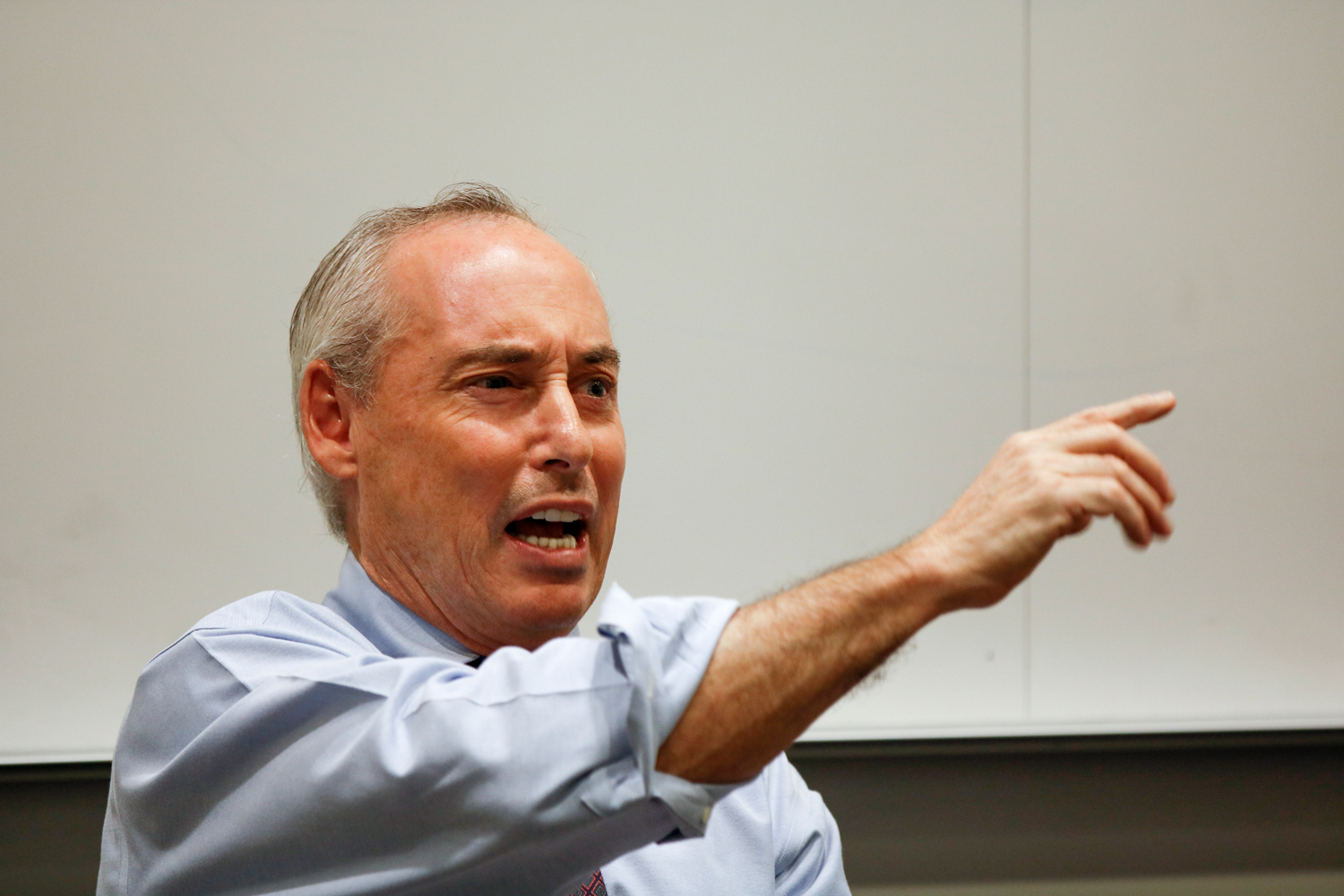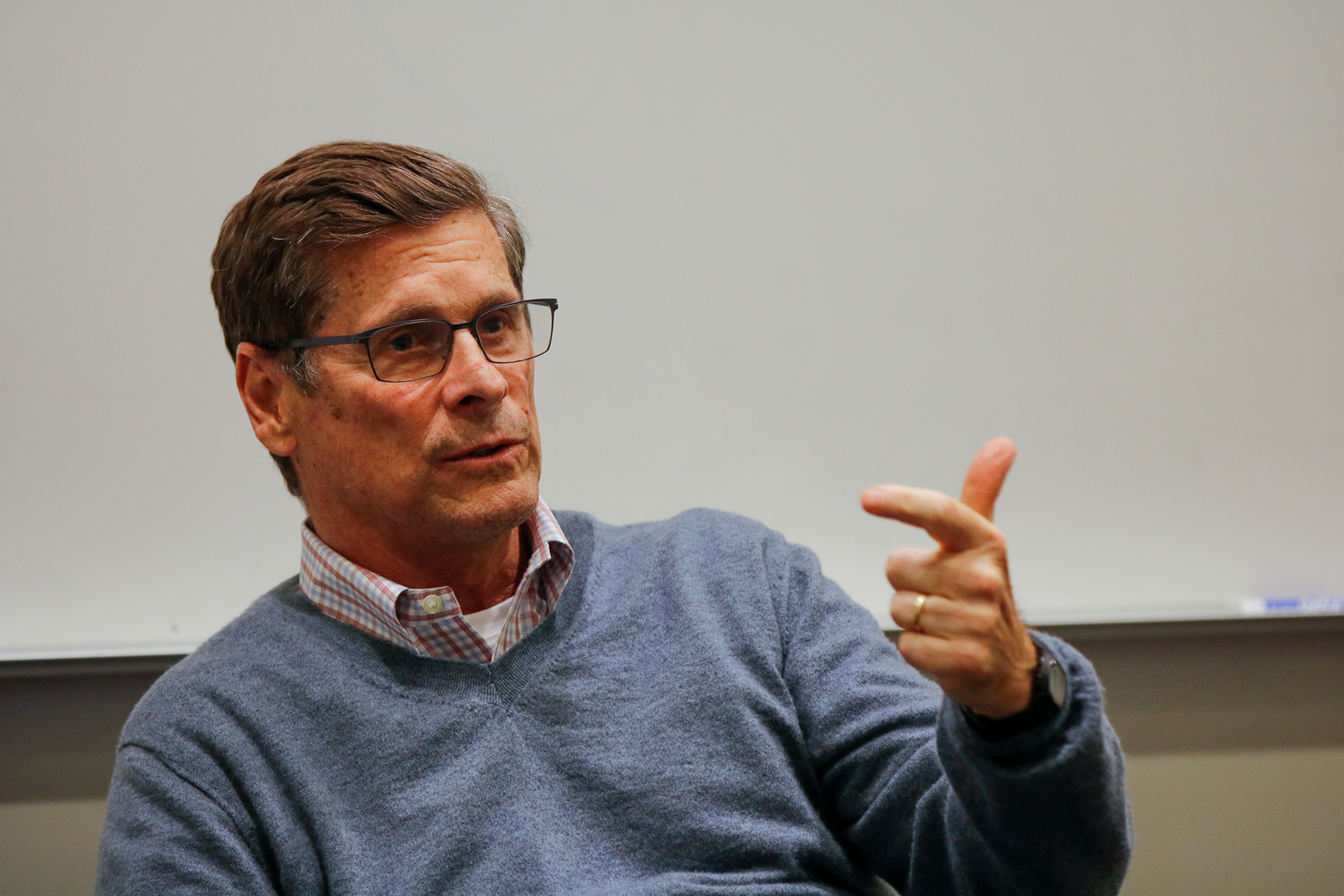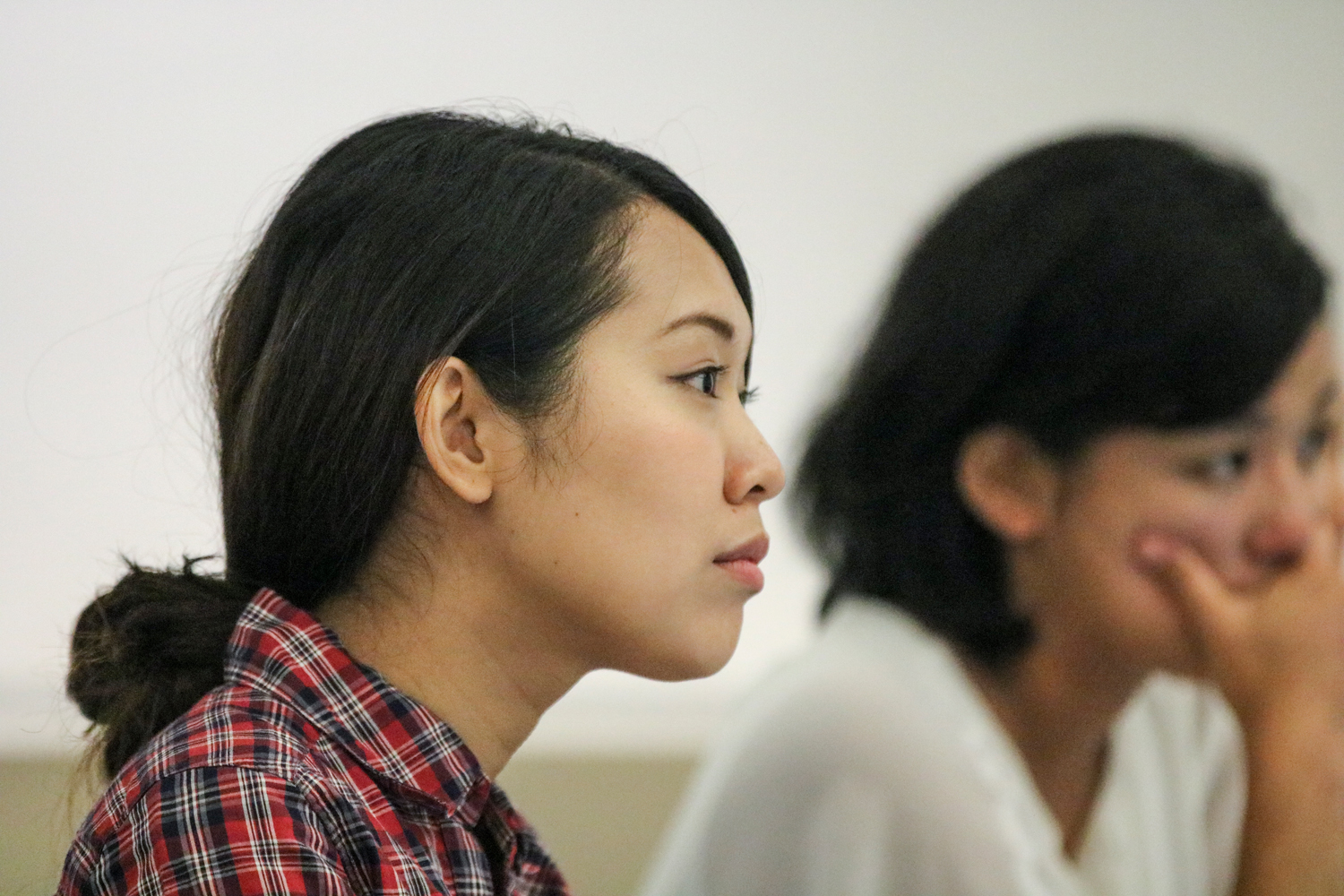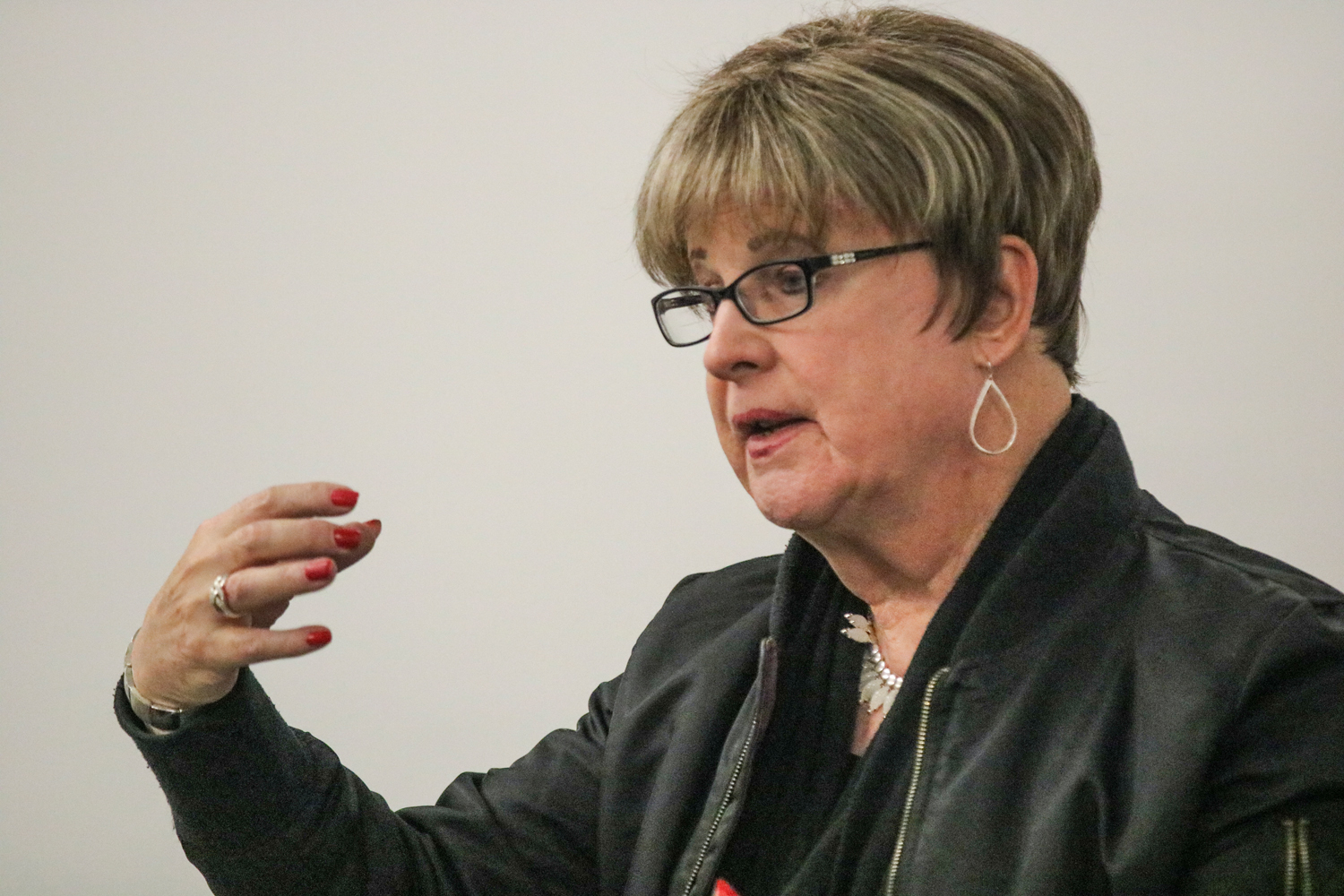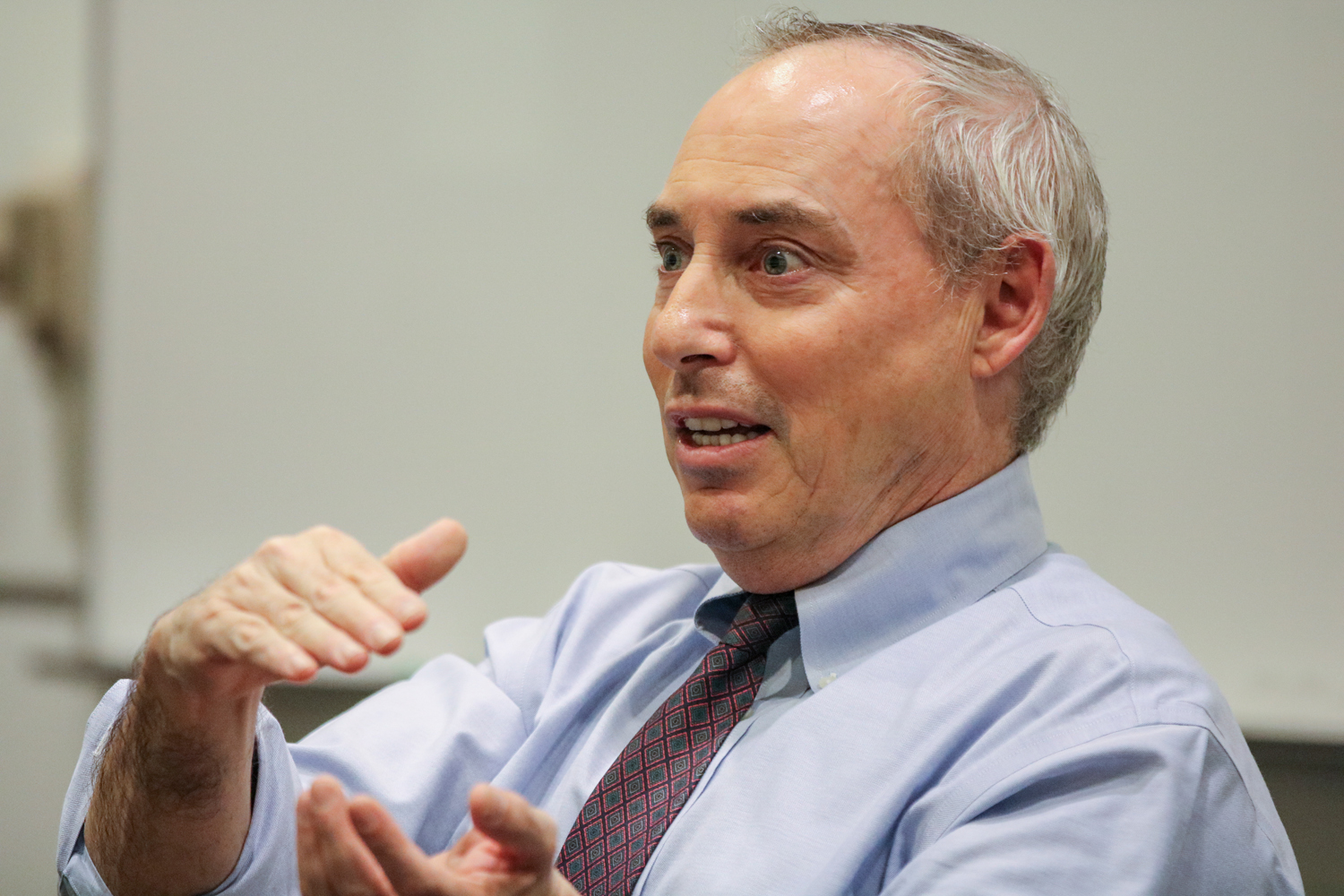Posts
Yaroslavsky Offers Insights on Democratic Debate
/0 Comments/in Luskin in the News Zev Yaroslavsky /by Mary BraswellKCAL9 News spoke with Zev Yaroslavsky, director of the Los Angeles Initiative at UCLA Luskin, following the fifth debate of Democratic presidential candidates. Yaroslavsky commented on the prominence of women’s issues during the forum, noting that in addition to the four female candidates on stage, all four moderators were women. “It was a change. You don’t see that many questions and answers on women’s issues in a typical debate,” he said. “In a Democratic primary, women have a disproportionately high percentage of the vote,” Yaroslavsky said. “African American women are a significant percentage of the African American vote and of the Democratic primary vote. So it was both a meritorious set of questions and also a politically significant set of questions.” Yaroslavsky’s tenure as a public official and civic leader in Southern California spans more than four decades.
Zepeda-Millán on O’Rourke’s ‘Last Effort to Stay Relevant’
/0 Comments/in Luskin in the News Chris Zepeda-Millan /by Mary BraswellChris Zepeda-Millán, associate professor of public policy, spoke with the Houston Chronicle about a campaign strategy shift by Beto O’Rourke. Since the Aug. 3 mass shooting in his hometown El Paso by a man who warned of a “Hispanic invasion of Texas,” the Democratic presidential hopeful has focused his message on racist violence, and held President Trump accountable for stoking it. This may be an attempt to jumpstart O’Rourke’s lagging campaign or set himself up as a vice presidential pick, some analysts said. “There’s nothing about him anymore that stands out,” Zepeda-Millán said. “He’s not a person of color, he’s not a woman, he’s not the most progressive candidate by far. He doesn’t have anything to set himself apart.” Zepeda- Millán concluded: “This is kind of a last effort to stay relevant.”
Yaroslavsky on Labor-Tech Faceoff as a Campaign Barometer
/0 Comments/in Luskin in the News Zev Yaroslavsky /by Mary BraswellZev Yaroslavsky, director of the Los Angeles Initiative at UCLA Luskin, spoke to the Associated Press about a faceoff between Big Labor and Big Tech that has become an issue in the Democratic presidential primary. Several major Democratic White House hopefuls have expressed support for a California bill backed by labor and opposed by tech giants such as Uber and Lyft, the article said. The bill would make it harder for tech companies to classify workers as independent contractors, who are not entitled to minimum wage or workers’ compensation. “It says something about where the candidates think the primary voters are on this issue,” Yaroslavsky said. They “may believe that labor can be more helpful to them than the high-tech companies can be to them in a caucus state or a primary.”
Segura on Biden’s Strategy to Win Over California
/0 Comments/in Luskin in the News Gary Segura /by Mary BraswellUCLA Luskin Dean Gary Segura spoke to USA Today about presidential candidate Joe Biden’s strategy to persuade California Democrats that he deserves their support. As the front-runner in several polls, the former vice president has presented himself as the most electable candidate, but his rivals counter that middle-ground politics will not inspire the passion needed to beat President Trump. Segura, who co-founded the polling and political analysis firm Latino Decisions, said Biden would be wise to emphasize his core beliefs. “His argument should start with, ‘There’s a reason I’m the most popular candidate and it’s that the preponderance of the Democratic electorate agrees with me on most issues — and, in fact, the preponderance of other Democratic candidates agree with me on most issues,’ ” Segura said. “He can better frame the argument by drawing attention to the fact that there is a huge portion of the American public that sees him as the logical, rational alternative to what we’ve been experiencing under Trump.”
Affordable Housing Is Not an Easy Fix, Lens Says
/0 Comments/in Luskin in the News Michael Lens /by Luskin StaffMichael Lens, associate professor of urban planning and public policy, evaluated proposed solutions to the affordable housing crisis, including those put forward by Democratic presidential candidates. Sens. Cory Booker and Kamala Harris have proposed offering tax credits to help tenants pay rent. Opponents argue that such vouchers will not change the number of housing units available and could even spur landlords to raise rents. On KCRW’s Left, Right & Center, Lens said tax credits are just one of a wide variety of tools and interventions needed to address the complex problem. These include stronger tenant protections and more publicly subsidized housing, he said. “This is not a problem that lends itself to an easy fix,” said Lens, associate faculty director of the UCLA Lewis Center for Regional Policy Studies. The podcast segment featuring Lens begins at the 34-minute mark.
Newton on ‘Golden Age’ for California Democrats
/0 Comments/in Luskin in the News Jim Newton /by Zoe DayIn a BBC News article relating the launch of Sen. Kamala Harris’ presidential bid to a resurgence of Democratic power in California, Public Policy lecturer Jim Newton weighed in on the so-called Golden Age for California Democrats. Harris, Rep. Nancy Pelosi and Gov. Gavin Newsom represent a consolidation of the Democrats’ progressive wing. Newton explained, “You don’t have to look back very far for [California] to be fairly reliably Republican. This notion of it being an absolutely rock-solid Democratic bastion is a relatively new phenomenon.” After decades of economic failure, California is reaping the benefits of rapid economic expansion. Experts do predict a downturn, but Newton still sees opportunity for Democrats. “There’s going to be a downturn, and how Newsom handles that really will help send the message of whether this state is something different or just better than most at riding an upward business cycle,” he said.
Dukakis on Culture Clash Exposed by Super Bowl
/0 Comments/in Luskin in the News Michael Dukakis /by Mary BraswellA Los Angeles Times opinion piece on the cultural clashes exposed by Sunday’s Super Bowl confrontation between New England and Los Angeles quoted Michael Dukakis, former Massachusetts governor and visiting professor of public policy at UCLA Luskin. Despite the geographical and cultural divide, the article noted that there are connections between Massachusetts and California that defy surface stereotypes. “Yes, the places are totally different,” said Dukakis, who for the past 24 years has spent fall term at Boston’s Northeastern University before heading to UCLA for the winter term. But Dukakis added, “In recent years California and Massachusetts have come together politically for the Democrats.”
Aberbach on Risks of Rigorous Oversight of Trump
/0 Comments/in Luskin in the News Joel Aberbach /by Mary BraswellUCLA Luskin Public Policy’s Joel Aberbach commented in a Roll Call article about House Democrats and the risks of launching rigorous oversight of President Donald Trump on many fronts. Aberbach said Democrats would be wise to “pick things that don’t get stymied right away by total obfuscation or refusal to cooperate.” He added that, in today’s hyperpartisan atmosphere, the results of investigations into Trump may not change how voters feel about him. “We may be at a point where people who sympathize with Trump aren’t going to accept anything as legitimate” grounds for impeachment, he said. “And people on the other side will accept almost anything.” Aberbach is a distinguished professor emeritus of political science and public policy at UCLA.
America in the Balance A Senior Fellows talk at UCLA Luskin by two political veterans reminds students that legislative success in America depends on compromise, not on who can yell the loudest
/0 Comments/in Alumni, For Faculty, For Policymakers, For Students, Public Policy, Public Policy News, School of Public Affairs, Social Welfare News /by Les DunseithBy Les Dunseith
Today, national politics is dominated by rancor, name-calling and partisanship. The pressure to pick a side and take up the battle against enemies on the political left or right can seem particularly intense for the students who study public policy at the UCLA Luskin School of Public Affairs.
But it doesn’t have to be that way. As former GOP gubernatorial candidate William “Bill” Simon reminded attendees during a Senior Fellows Lecture Series discussion on June 8, 2017, actually getting things done in politics requires compromise and consensus.
“I feel very strongly that there is a role for sensibility. There is a role for courtesy,” Simon told a group of UCLA Luskin students and faculty members. “You have to have courtesy for people who don’t agree with you.”
The value of being open-minded was particularly apt given that the spirited discussion took place on the UCLA campus and also included political strategist Dan Schnur, who is a faculty member at cross-town rival USC.
“It’s really easy to point to the most irrational and repulsive voices on the other side and use them as an excuse not to engage with someone who doesn’t agree with you,” Schnur said of the current political climate. “I remind people that someone who disagrees with me 80 percent of the time isn’t my enemy. She’s someone I can work with 20 percent of the time. And think of what we can accomplish in that 20 percent.”
A wide-ranging Q&A session included discussions about volunteerism, student activism and speculation about the 2018 California governor’s race. The speakers addressed international issues like climate change. But the session was dominated by talk of the turmoil in Washington, D.C.
The gathering was organized by VC Powe, director of career services and leadership development, in part because of a request from students — some of them from other countries.
“College campuses like UCLA can be liberal-leaning, so it was great to see students come forward, asking for speakers who could talk about the current presidential administration from a more conservative and independent-thinking viewpoint,” Powe said. “We need to create more spaces like this for meaningful dialogue.”
Schnur is registered as a “no party preference” voter nowadays, but his resumé includes stints working as a communications director for Republican Sen. John McCain and a former GOP governor of California, Pete Wilson. Simon is a businessman and philanthropist who has co-taught a class at USC with Schnur and also serves as a visiting professor at UCLA in law and economics. He described himself during the UCLA gathering as an “unapologetic conservative Republican.”
Simon told the students that America is currently at an important intersection in history in which political consensus has eroded. He reminded them of another highly charged time of partisan politics.
“You had a conservative Republican like Ronald Reagan in the ’80s who could still get something done with a liberal Democrat like Tip O’Neill,” he said of the former president and House speaker, who ended up finding enough common ground to produce landmark reforms of welfare, taxes and Social Security. “And I think that has now been lost.”
The current political discord may turn out to be a historical aberration, Schnur said, pointing out that it’s a worthwhile reminder of what makes America unique. By happenstance, the UCLA session occurred on the same day as opening testimony by former FBI Director James Comey about whether President Donald Trump had acted improperly in seeking to derail an investigation of possible ties to Russia among Trump allies.
“A country’s chief executive is being questioned for what the head of our domestic law enforcement agency called ‘deeply disturbing behavior,’ and there is a constitutional process in place for another branch or branches of government to check that behavior should it become necessary,” Schnur said. “Whether you are a Republican or a Democrat, whether you are a no party preference or a Green or a Libertarian or a vegetarian, you ought to be able to take some real comfort, if not some real pride, in the idea … that there is a process and a system in place to address these potential excesses in a completely appropriate and legal and constitutional manner.”
Both Schnur and Simon said the country’s political divide certainly is being exacerbated by the actions and behavior of Trump.
“This is as much hatred as I have ever seen for a person in the political arena. And I think that’s too bad,” said Simon, who noted that he personally dislikes the president and questions his tactics despite agreeing with certain actions, including his choice of Neil Gorsuch to join the U.S. Supreme Court.
“But 62 million people voted for Trump. So obviously there is something going on,” Simon said.
He said many people who voted for Trump did so because they felt like their views had been overlooked.
“They didn’t trust anybody that got elected, Republican or Democrat. It was just a way of protesting the establishment,” Simon suggested. “It wasn’t so much that Trump resonated with them politically. Trump resonated with them emotionally. Because he was angry.”
Schnur said he also is no fan of Trump. He thinks the current political gridlock in Washington likely will be transitory and noted that the 2016 election result is already motivating party leaders to rethink policy positions and election strategy. Perhaps the end result will be a more thoughtful, reflective American electorate.
“Politics doesn’t lead society. Politics reflects society,” he said.
Schnur pulled out his cellphone and spoke about the wonderful sense of freedom and empowerment it provides to him, noting the near-constant flow of information and access to entertainment, ideas and opinions.
Then he pointed to the ear buds.
“As soon as I put these plugs in my ears to listen to my favorite music, I immediately lose any interest in what you are listening to,” Schnur said, motioning toward Simon as he continued the metaphor. “If I have one set of cable stations, and he has another. If I have one set of podcasts and websites, and he has another … we are not just disagreeing on the issues of the day. We are experiencing two entirely different versions of reality.”
Turning back to the gathering of students and faculty, and hinting at their desire to weather the current political storm and pursue careers that improve American policy, Schnur continued.
“What can we do? We can take the plugs out of our ears.”

Contact
UCLA Luskin School of Public Affairs
3250 Public Affairs Building - Box 951656
Los Angeles, CA 90095-1656
